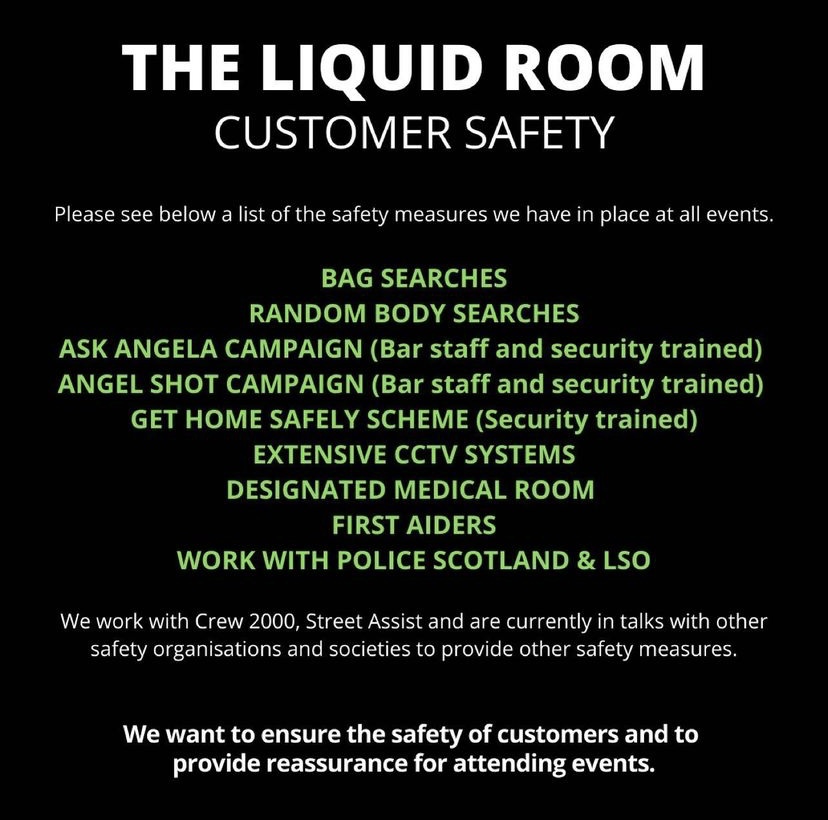
Yes, spiking is a problem, but giving more power to bouncers is not the answer
Should we really be giving more control to people that are often part of the problem?
TW: spiking, harassment, sexual assault
The reopening of clubs this year has meant that for most people Freshers’ Week was once again an almost “normal experience”, and one that due to the efforts to keep things Covid-friendly, finally felt relatively safe. However, reports of spiking in Scotland and all throughout the UK have shot through the roof, leaving people unwilling to exercise their newfound freedom – particularly due to the recent reports of spiking by injection.
All advice has told us to protect our drinks, but how are we supposed to protect our bodies?
We need to be incredibly cautious about what petitions we sign
The response that has emerged has been admirable. People have been sharing their stories and offering advice, signing petitions and spreading them on Instagram, in order to reach as many people as possible. A notable example has been the @girlsnightinedinburgh club boycott scheduled to take place on October 27th. However, we still need to be incredibly cautious about what we lend our support to, and what petitions we sign.
One that has been circulating and has now reached 167,145 signatures at the time of writing is titled “make it a legal requirement for nightclubs to thoroughly search guests on entry.” It has exceeded the 100,000 signatures necessary for government debate, and there is a real chance that this could now be enforced.

Whilst it was shared and signed with the best of intentions, it has left many people feeling incredibly uneasy. Especially in the wake of the Sarah Everard’s murder – a tragic and terrifying example of how people who hold power can often abuse it, usually against women and people of colour.
How can we trust bouncers when they are well known for turning a blind eye?
There are those who are convinced that bouncers and club security are involved in cases of spiking or harassment, and even if they are not the perpetrators, they often seem to care little about genuinely preventing it, or keeping club goers safe. Bouncers can be too preoccupied with their job security and the reputation of their club, leading them to turn away and prevent re-entry to those who ‘look like they’ve had a bit too much’, which in turn prevents those who have been spiked from receiving help. And yet, bouncers are well known for turning a blind eye to those that grope and harass others within the club.
One second year student spoke anonymously to The Edinburgh Tab about an incident in a popular Edinburgh nightclub, in which they were grabbed “in full view of the bouncers” with no consequences at all. The student felt “powerless” and left shortly after.
With that in mind, how comfortable can we expect people to feel at the idea of being thoroughly searched by those who are felt to abuse their power and who are not trained nor ordinarily expected to do so?
Random body searches are not the answer
This policy is already being enforced in some clubs – although the petition has not yet run its course, as a debate date is still pending. Some venues in Edinburgh have decided to adopt the measures independently, with The Liquid Room promising the introduction of “random body searches” in one of its latest Instagram posts. This will no doubt cause concern for those worried about being unfairly targeted by bouncers in the club.

The truth is we don’t have the perfect solution yet, but something must be done to allow people to start feeling safe in their city again. However, we must first think critically and carefully about the content we chose to promote and the solutions we chose to put forward, in order to not make things worse.
The Liquid Room has been contacted for comment.
Recommended related articles by this writer:
• Edi_Anonymous survey shows the top places people claim to have been spiked in Edi
• Edinburgh students are using Edi_Anonymous to report stories of being ‘spiked by injection’
• We asked Edinburgh clubs what their spiking policies and procedures are









































